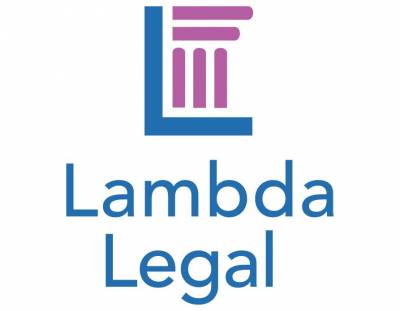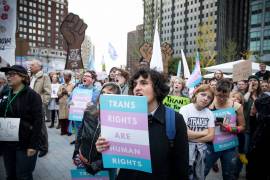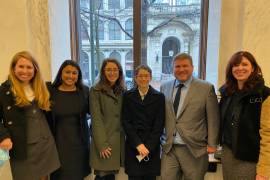
Lambda Legal Condemns Ruling Denying Second-Parent Adoption in Puerto Rico
Blog Search
Puerto Rico’s Supreme Court rejected a same-sex couple’s second-parent adoption yesterday. In a 5-4 decision, the Court ruled that the island’s ban on adoptions by same-sex couples was valid and lawful.
Nothing can be further from the truth: Banning same-sex couples from adopting children is discriminatory and wrong. It is also out of step with an increasing number of jurisdictions that actively seek to protect all children and their families—regardless of the sexual orientation or gender identity of any of its members. This ruling by Puerto Rico’s Supreme Court sanctions discrimination, and leaves countless children and families weaker and more vulnerable.
LGBT couples and their families are an increasingly visible part of our communities. We live in the same neighborhoods and send our children to the same schools. Family ties and bonds are important to LGBT families, and we are committed to raising our children in nurturing, loving and stable homes. Family unity engenders support networks that enable our communities to thrive. Entire communities are enhanced with each united family, regardless of the sexual orientation or gender identity of any of its members.
In many states, regardless of whether or not you are married, you may adopt your same-sex partner’s biological or adoptive children. This is called a “second-parent adoption,” and makes both members of a same-sex relationship the legal parents of the children. Second-parent adoptions are very important to protect families, and can provide a child with the security of two legal parents who share parental rights and responsibilities.
These rights and responsibilities include: the ability to make or jointly share in medical decisions, the right to visit your child in the hospital, and automatic custody rights if the other parent dies or becomes incapacitated. Additionally, a second-parent adoption will help ensure that a child receives financial support from both parents; health or other insurance benefits from both parents; Social Security, retirement or state workers’ compensation benefits if either parent dies or becomes incapacitated; and inheritance rights or pension benefits available only from legal parents.
Puerto Rico's Supreme Court ruling harms the island's children and families by denying them access to these vital protections.




